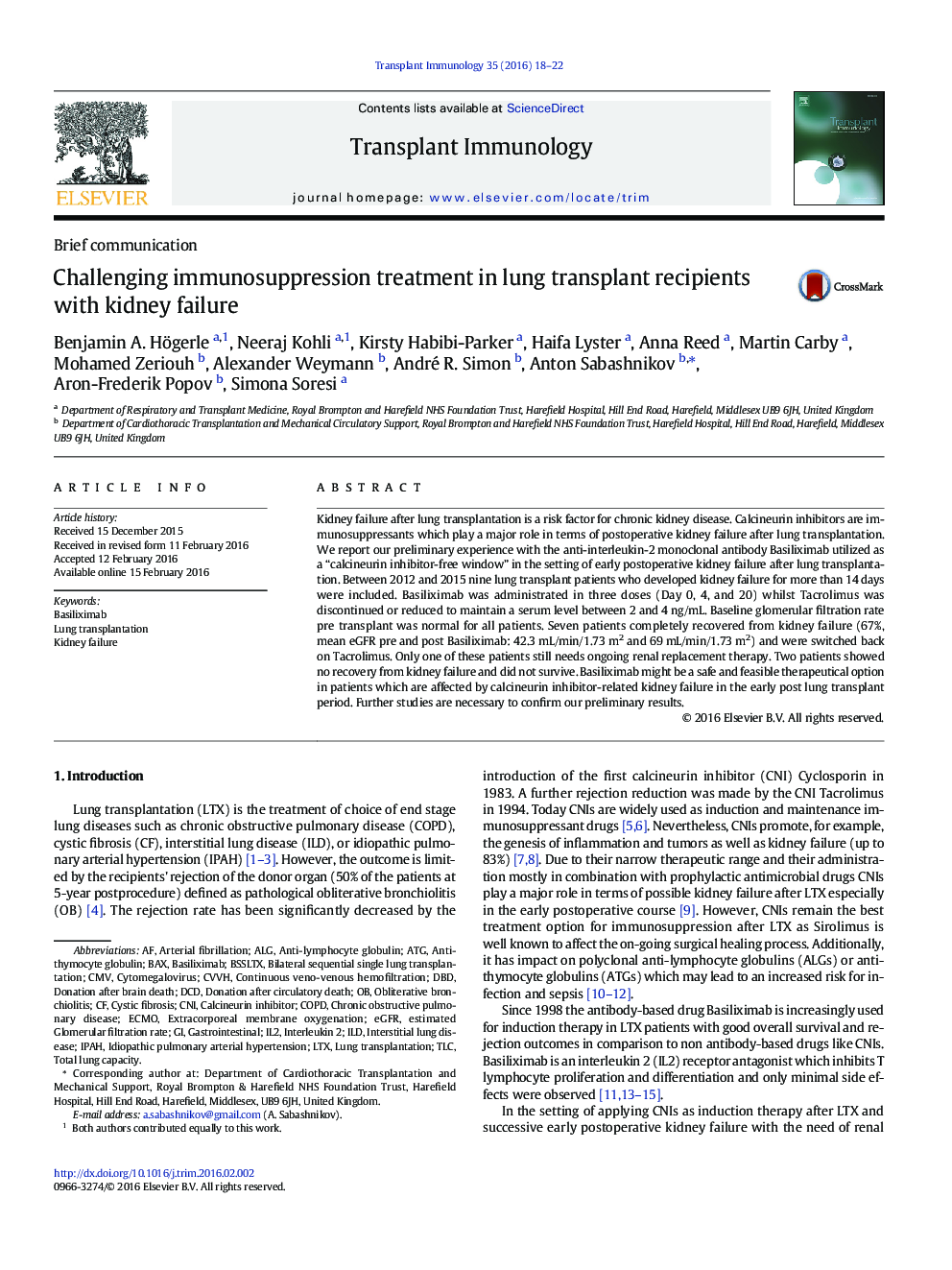| Article ID | Journal | Published Year | Pages | File Type |
|---|---|---|---|---|
| 3392012 | Transplant Immunology | 2016 | 5 Pages |
•Kidney failure after lung transplantation is a risk factor for chronic kidney disease.•Basiliximab is a therapeutical option for kidney failure after lung transplant.•Basiliximab should be utilized as a “calcineurin inhibitor-free window”.
Kidney failure after lung transplantation is a risk factor for chronic kidney disease. Calcineurin inhibitors are immunosuppressants which play a major role in terms of postoperative kidney failure after lung transplantation. We report our preliminary experience with the anti-interleukin-2 monoclonal antibody Basiliximab utilized as a “calcineurin inhibitor-free window” in the setting of early postoperative kidney failure after lung transplantation. Between 2012 and 2015 nine lung transplant patients who developed kidney failure for more than 14 days were included. Basiliximab was administrated in three doses (Day 0, 4, and 20) whilst Tacrolimus was discontinued or reduced to maintain a serum level between 2 and 4 ng/mL. Baseline glomerular filtration rate pre transplant was normal for all patients. Seven patients completely recovered from kidney failure (67%, mean eGFR pre and post Basiliximab: 42.3 mL/min/1.73 m2 and 69 mL/min/1.73 m2) and were switched back on Tacrolimus. Only one of these patients still needs ongoing renal replacement therapy. Two patients showed no recovery from kidney failure and did not survive. Basiliximab might be a safe and feasible therapeutical option in patients which are affected by calcineurin inhibitor-related kidney failure in the early post lung transplant period. Further studies are necessary to confirm our preliminary results.
